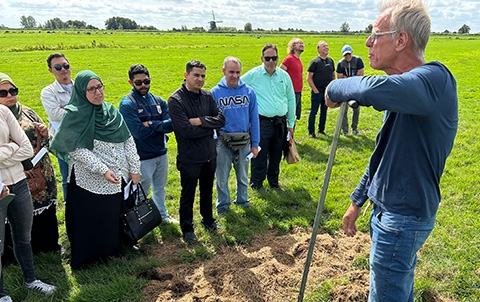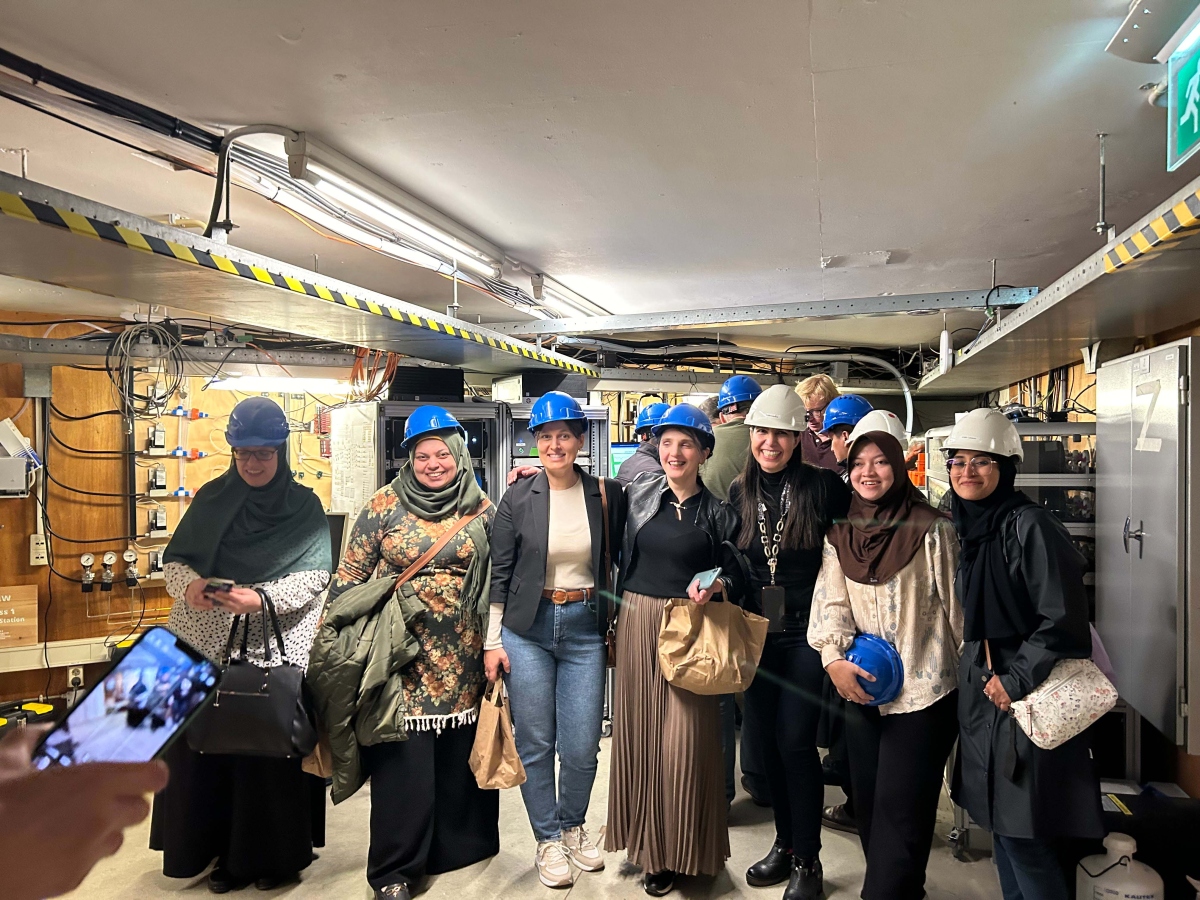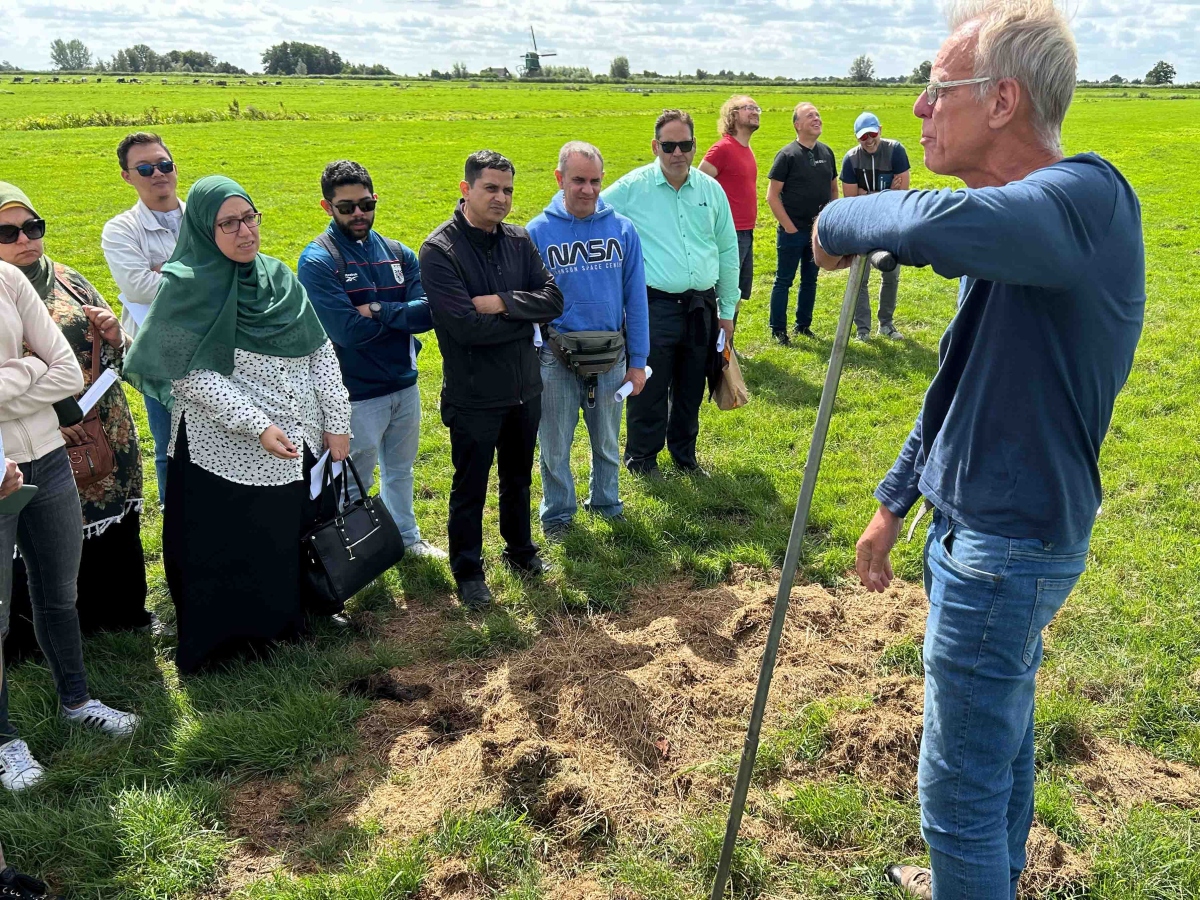
The 7th ICOS Summer School – which took place in August 2024 in Wageningen, the Netherlands - was a summer school with a twist. This year’s Summer School was a collaboration between the World Meteorological Organisation (WMO) and the ICOS-coordinated Horizon Europe project NUBICOS.
This collaborative Summer School was aimed at capacity-building within the remit of the WMO’s Global Greenhouse Gas Watch (G3W). Accordingly, participants were professionals working in research institutes and meteorological organisations from under-sampled regions around the world. Participants came from Armenia, Costa Rica, Ecuador, Egypt, India, Indonesia, Moldova, Morocco, Panama, Peru and South Africa.
We asked participants about the knowledge and experiences they planned to share with their home country colleagues.
Building capacity and taking knowledge back home
The activities at the Summer School were comprised of lectures, hands-on workshops and excursions to stations. Over the course of a week, the participants learned about almost all relevant aspects of Carbon Cycle and Climate Science in the context of global climate change. Participants also got hands-on experience with global transport models in modelling CO2 concentrations and optimisation of CO2 fluxes from observations through Bayesian inversion.
Despite a busy schedule, the participants came away with a lot. “I’ve accumulated abundant knowledge,” says Arpine Sukiasyan from the Armenian State Hydrometeorological and Monitoring Service. “This will help build our capacity and abilities to measure CO2 and other emissions (in Armenia).”

Tall towers and high ambitions: taking inspiration from stations
The Summer School programme included two excursions to ICOS sites - one to the tall tower at Cabauw and one to the ICOS forest ecosystem site Loobos. Getting up close and personal with station equipment was particularly interesting for participants. Some were working on setting up new stations, so the chance to ask questions at the sites themselves was readily taken up by the participants.
“South Africa is just starting an integrated greenhouse gas emission monitoring system that will be based on the top-down approach,” explains Melaku Tesfaye Yigiletu from the South African Weather Service. “We’re keen to get ideas from this Summer School on how to start this whole inversion modelling process.”
“The workshops and station visits are particularly helpful for those countries that are planning or just starting their observations,” outlines Yogesh Kumar Tiwari from the Indian Institute of Tropical Meteorology. “That way they can begin their process as per the ICOS standards and protocols.”

Building a global network
Spending a week learning and socializing together meant the Summer School was an ideal environment to network and learn from one another. Many were excited to meet with colleagues from other countries. “I like exchanging experiences with other colleagues doing greenhouse gas observations,” says Kathia Aguilar Martin from the National Institute of Meteorology in Costa Rica. “I expect to help capacity-building in Costa Rica with the information I get from this training and exchanges.”
Establishing renewed or better connections with ICOS was important for participants. “Currently, our one Global Atmosphere Watch (GAW) station at Cape Point (South Africa) is representative of the Southern Ocean, and we need to make some measurements inside the country which also show cross-border transportation of greenhouse gases,” explains Casper Labuschagne from the South African Weather Service. “So, I’m quite excited to speak to colleagues from ICOS about this. ICOS is the gold standard when it comes to measurement techniques and data."
Interested in attending the next ICOS Summer School in 2025? Applications are now open until 1st December 2024. Read more and apply here.
This Summer School was supported by NASA under award No. 80NSSC23K1349 and the NUBICOS project (EU Grant Agreement 101130676).